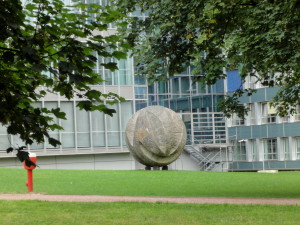 The IBA Litigation Committe has produced a survey looking at the impact of COVID-19 on court operations and litigation practice across 37 different jurisdictions – from Argenina to the United States. Jeff Galway and Urs Hoffmann-Nowotny served as general editors and I had the honour of contributing the chapter on Germany. The plan is to update the survey as matters develop in the various jurisdictions. Here’s the link to the IBA Litigation Committe homepage and here is a link to the report in its current form. Read More
The IBA Litigation Committe has produced a survey looking at the impact of COVID-19 on court operations and litigation practice across 37 different jurisdictions – from Argenina to the United States. Jeff Galway and Urs Hoffmann-Nowotny served as general editors and I had the honour of contributing the chapter on Germany. The plan is to update the survey as matters develop in the various jurisdictions. Here’s the link to the IBA Litigation Committe homepage and here is a link to the report in its current form. Read More
Tag: Peru
Climate Change Litigation: Hamm Court of Appeals Considers Site Visit in Peru
 We have tracked the first major piece of Climate Change litigation in Germany, an action by Peruvian farmer Saul LLiuya against German energy company RWE, since it was started in November 2015. Here’s a recap of what happened so far:
We have tracked the first major piece of Climate Change litigation in Germany, an action by Peruvian farmer Saul LLiuya against German energy company RWE, since it was started in November 2015. Here’s a recap of what happened so far:
Climate Change Litigation: Peruvian Farmer to Sue German Energy Company RWE
On 24 November 2015, according to a press release, a Peruvian farmer has issued proceedings against the major German energy company RWE in the Essen District Court (Landgericht). The action, supported by various NGOs, seeks to establish the civil liability of RWE for climate-change induced risks that the plaintiff allegedly is exposed to.
Here is a statement from the plaintiff’s lawyer, Roda Verheyen: “RWE AG releases significant emissions, principally through its coal-fired power plants, which makes global temperatures rise, causes glaciers to melt and leads to an acute threat to my client’s property. We request that the court declare RWE liable to remove this impairment. In late April of this year, RWE rejected letter of claim on this matter. The lawsuit is the next step. The Intergovernmental Panel on Climate Change (IPCC) links Andean glacial melting back to global climate change. In Huaraz, the danger is imminent: the glacial lake Palcacocha, which lies several kilometres above the city, has grown four times in size since 2003. Climate change has also increased the risk that large pieces of ice will break off the glaciers and fall into the lake. This could cause a massive wave, leading to a devastating flood in the densely settled areas below. The Peruvian disaster protection agency warns that there could be a flood at any moment; the Palcacocha glacial lake is the most dangerous in the region. In order to sustainably decrease the risk, large amounts of water need to be pumped out. This requires a new drainage system and reinforcement or amplification of the lake’s dams.”
No doubt RWE will vigorously defend the action, and whatever the outcome is going to be, the matter will progress, most liekly all the way up to the Federal Supreme Court (Bundesgerichtshof).
